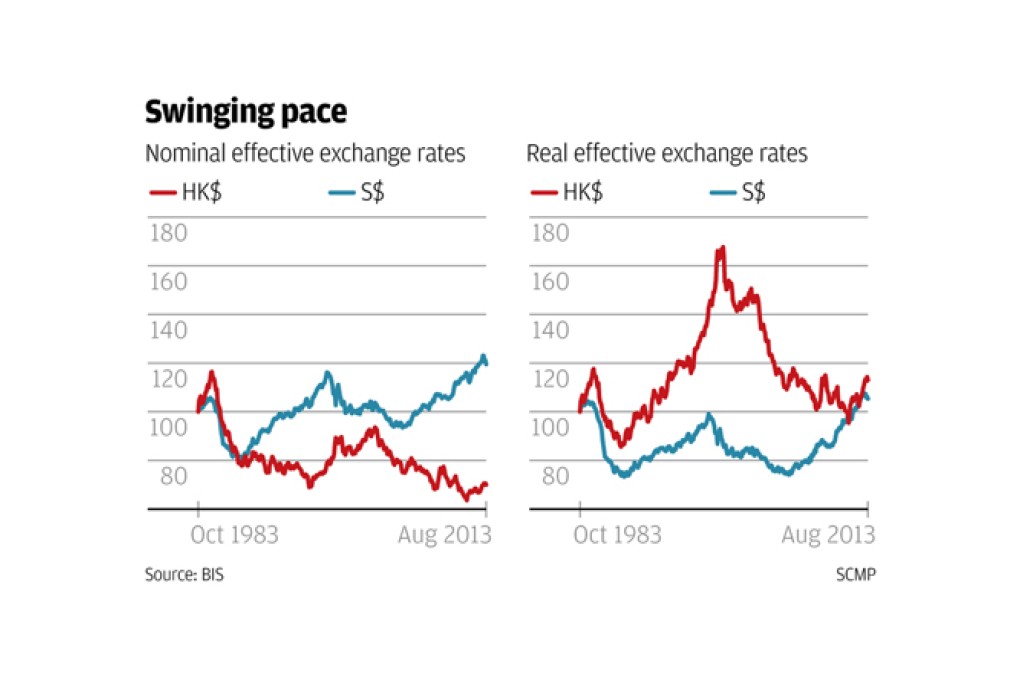Monitor | A Singapore-style system just wouldn't work in Hong Kong
The city state's managed currency float has worked for it in the past, but its performance since the financial crisis has not been spectacular

Although he accepted that a yuan peg would be a non-starter, he pointed out that Hong Kong's current peg to the US dollar or a link to the mainland currency are not the only possible exchange rate regimes for the city.
What about a Singapore-style managed float?
At first, that sounds an eminently sensible idea. Singapore has long managed its exchange rate against an undisclosed basket comprising the currencies of its major trading partners and competitors.
The idea is that in a small, open economy, domestic interest rates have only a limited effect on local inflation. So rather than managing the economy by raising and lowering interest rates, instead the monetary authority steers the Singapore dollar higher or lower against its basket in order to contain imported inflation, keep interest rates low, and maintain Singapore's competitiveness.
